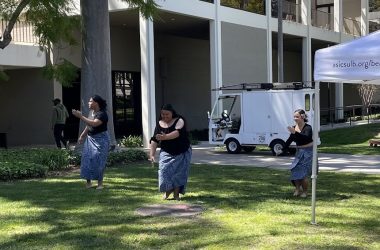Senate Bill 86, which would prohibit California State University trustees and administration from increasing their salaries and approving raises for any CSU executive officer, has been brought back to the Senate floor for more tinkering.
The bill, proposed by Sen. Leland Yee, D-San Francisco, is an amendment to Senate Bill 217, which was supposed to force thousands of CSU and University of California executives earning more than $200,000 to cap their salaries and refuse raises.
The state Senate supported the bill in a 35-3 vote in May but as the bill moved forward, lobbyists for the UC and CSU told the Assembly Education Committee that capping salaries would cost the systems millions of dollars because many executives would quit, forcing the schools to spend more on recruitment, according to the San Francisco Chronicle. Committee Chairman Kevin de Leon, D-Los Angeles, then buried the bill without a vote.
Cal State Long Beach President F. King Alexander said the bill’s passing would only make a slight difference in improving the state’s budget.
“You know, if this passes, so what?” Alexander said. “If it passes, it’s not going to create any money. These are all diversions. They are symbolic diversions that I think sound good on the front page, but what haven’t they done and why aren’t they passing legitimately fair budgets for people? … This impacts only a small number of people and if it passes, it passes — we’ll live with it.”
Alexander said the Legislature spends too much time passing bills that distract much needed attention from the “real” issues.
“[These bills] have very little ultimate impact on the end result of whether we have money to enroll more students or less students,” Alexander said. “I’ve dealt with a lot of state legislators and they like high-profile, symbolic issues that ultimately have no impact whatsoever on the university budget — or the students — and they can take credit for it, for passing the legislation.
“We’re not only dealing with this massive budget cut, but then they drew up 2,500 bills that we have to respond to one way or another. That just ties your hands. So that’s kind of the frustrating part, that you’re cut so badly at the same time that you’re dealing with just legislation that has no impact on why you were cut so badly or how it can help you not be cut so badly the next time around.”
Chris Burnett, CSULB media law professor, said he is not surprised the bill has been amended but would be surprised if it becomes a law.
“Administration do not like their hands tied because they cannot hire [or keep] critical people,” Burnett said. “It is never going to be popular with administration just like furloughs are never going to be popular will faculty.”
Burnett said the creation of this bill is symbolic in that it creates an illusion of saving and creating money, even if there was never a lot of money to spend in the first place.
“In some cases, they would need to spend extra to keep people on board,” he said.
Although the bill may seem like a quick fix in balancing the state budget, Burnett said freezing administration salaries and raises could work, just not alone.
“It makes a difference,” Burnett said. “The faculty is much larger than administration, but should administration have to bear the burden for the state’s inability to fund higher education? Should students have to bear the burden?”
Alexander said administrators are already putting in sacrifices but have not been receiving enough support from the state.
“I think that in times like this where they’ve basically cut 25, possibly 40, percent of our entire budget, depending on stimulus money, that they ought to be doing what they can to help universities get by,” Alexander said. “A lot of times … they sit around and create legislation, and we have to defend [it].”
Burnett said that even though “we are in a bust” right now, the system will eventually get better as the economy improves in time.
“The state doesn’t have the money, but inevitably the problem will be solved when the state of California gets healthier,” Burnett said. “I wish it were easier.”



